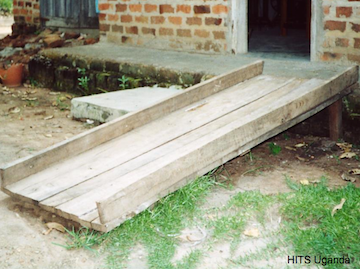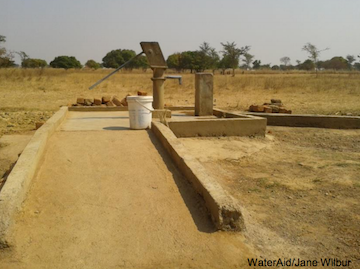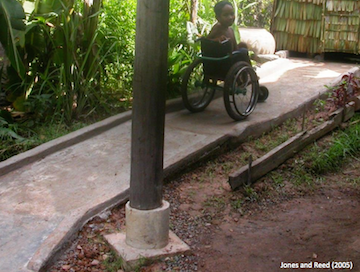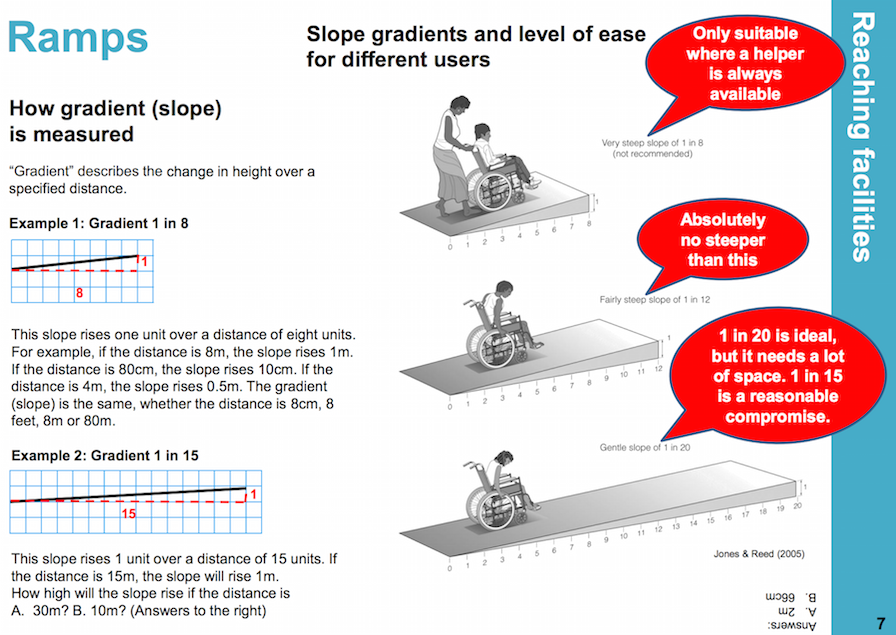Accessible - Ramps
From Akvopedia
| Suitable for: Users with physical impairments, wheelchair users, older people, people carrying heavy loads. |
| Construction | Advantages | Disadvantages | Improvements / variations | Cost / labour |
| Moveable wooden ramp for wheelchair to access facilities with steps |
|
|
Paint raised sides white or bright colour to increase visibility | Medium |
| Wide concrete ramp to handpump apron |
|
|
|
Medium |
| Low-gradient concrete ramp with raised sides for safety |
|
|
Paint raised sides white or bright colour to increase visibility | High |
Acknowledgements
- Content and images: Compendium of accessible WASH technologies WaterAid and WEDC.





